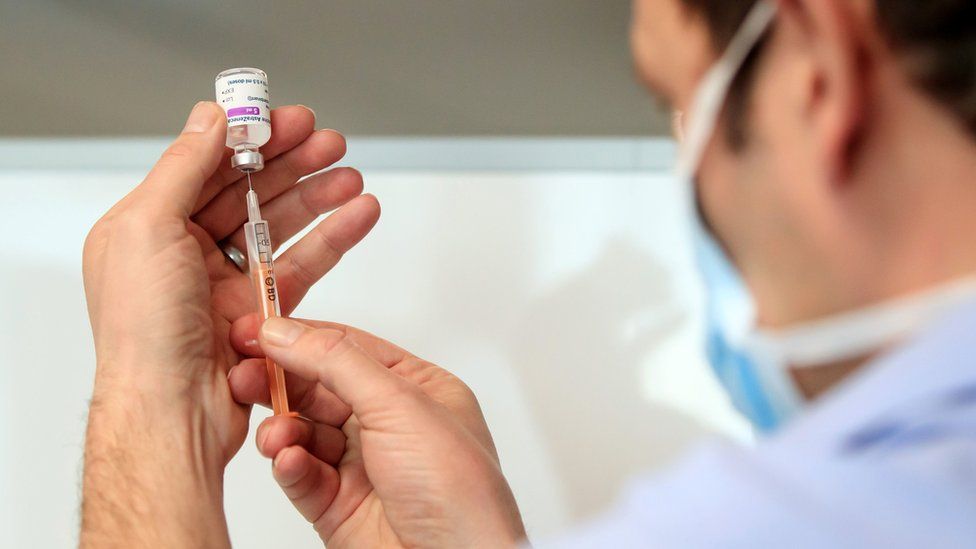Germany will only administer AstraZeneca's Covid-19 vaccine to people aged 60 and above, Chancellor Angela Merkel said Tuesday, following the advice of the country's vaccine committee. The move follows reports of rare blood clots in the brains of 31 people following the first dose since the shots started being administered in the country.
The decision contravenes recommendations from the European Medicines Agency (EMA) and the World Health Organization, both of which have said there does not seem to be a link between blood clots and the vaccine and both of which have said the benefits of the vaccine outweigh the risks. Germany's vaccines committee did not explain its decision and did not immediately say if the number of blood clots was out of proportion to the population vaccinated.
So far 2.7 million Germans have been vaccinated with the first dose of Astrazeneca's vaccine, according to the Ministry of Health. Complications have been reported in one out of 100,000 vaccinations with Astrazeneca's vaccine, according to the agency. It did not detail what those complications are and how serious they were. Those younger than 60 can voluntarily receive the AstraZeneca vaccine after a thorough clarification with a vaccination doctor to consider individual risk, Merkel said at a news conference in Berlin, after the release of the country's vaccine committee STIKO's recommendations.
German Health Minister Jens Spahn appealed to those in the age group 60-69 who are next to be eligible for a vaccine to go ahead and get the shot.STIKO will issue further guidance on whether to administer a second dose to people under 60 who have had their first shot at the end of April. Ahead of the vaccine committee announcement, the German cities of Berlin and Munich, and the northern state of Brandenburg stopped the use of the vaccine in people below the age of 60.
Germany, France and Italy were among more than a dozen countries to pause their rollouts of the Oxford-AstraZeneca shot while Europe's medicines regulator, the European Medicines Agency investigated concerns over a possible link between the Oxford-AstraZeneca vaccine and reported blood clot cases.
But this month, EMA executive director Emer Cooke said the agency had come to "a clear scientific conclusion," adding: "This is a safe and effective vaccine."
She said the group did not find that the vaccine causes clotting, though it could not definitively rule out a link to a rare blood clotting disorder. Cooke added that the benefits of the vaccine outweigh the risks, a message already stressed by both the EMA and WHO.
AstraZeneca said in a statement that investigations by both the UK's Medicines & Products regulatory agency (MRHA) and the EMA were not able to establish a causal relationship between the vaccine and clotting events, adding: " However, the EMA concluded that for very rare cases of serious cerebral thromboembolic events with thrombocytopenia a causal link with the vaccine is not proven but deserves further analysis."
"Regulatory authorities in the UK, European Union, the World Health Organization have concluded that the benefits of using our vaccine to protect people from this deadly virus significantly outweigh the risks across all adult age groups," AstraZeneca said.

 Germany restricts the vaccine for those over 60 while Canada restriction at 55 years and older
Germany restricts the vaccine for those over 60 while Canada restriction at 55 years and older























.jpeg)









